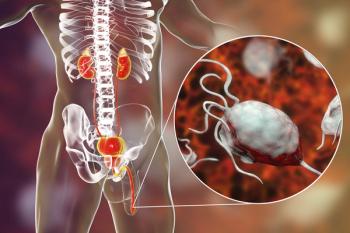
It is important that the whole community understand that basic research and clinical trials can continue to improve outcomes for patients with genitourinary cancer.

It is important that the whole community understand that basic research and clinical trials can continue to improve outcomes for patients with genitourinary cancer.

In this special issue of CURE®, we spoke with patients and health care providers about fertility issues, treatment advancements and other topics related to kidney, prostate, testicular and bladder cancers.

Despite a testicular cancer diagnosis, men have options when it comes to starting or growing their family.

A first-of-its-kind trial underway in patients with penile cancer may lead to a more effective therapy sequence, potentially avoiding unnecessary surgery.

Monitoring, rather than immediately treating, patients with low-risk prostate cancer may be a better approach, says an expert from UCSF Helen Diller Family Comprehensive Cancer Center.

Immunotherapy and tyrosine kinase inhibitors may potentially change the treatment paradigm for patients with renal cell carcinoma, the most common type of kidney cancer in adults.

After decades of research, scientists inch closer to FDA approval for PSMA-targeted treatments that show promise for patients with an advanced form of prostate cancer.

Smoking cigarettes could lead to a four-fold increased risk of recurrence in patients with a previous diagnosis of non-muscle invasive bladder cancer.

Agent Orange exposure impacted millions of U.S. military personnel during the Vietnam War. The chemical may have led to bladder cancer diagnoses later in life.